エアコンが臭う 6 つの理由と最適な解決策
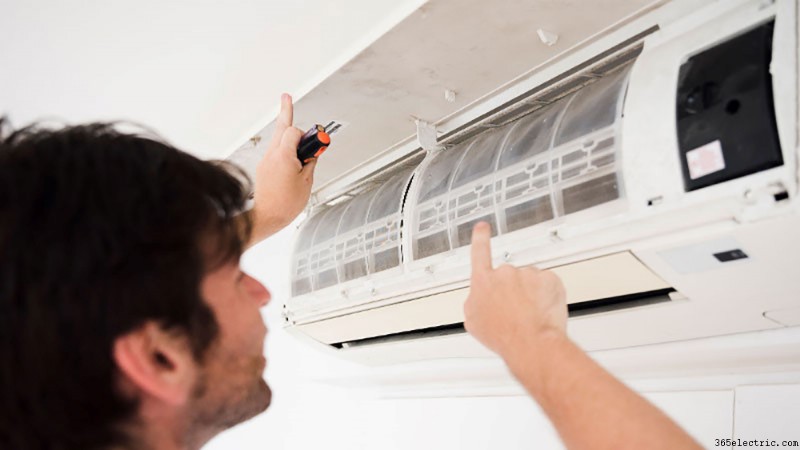
長くて蒸し暑い一日を終えて帰宅したと想像してみてください。ブーツを脱ぎ、ネクタイを緩め、AC をオンにします (Cielo Breez Plus を持っていれば、最後のステップを実行する必要はありません) が、何か変なにおいがします。
部屋に悪臭が充満し、エアコンを切らざるを得なくなります。
一体なぜ私のエアコンは臭いのだろうか?これは、より多くの節約が無駄になることを意味しますか?
この記事では、エアコンから悪臭がする一般的な理由について説明します。臭いは、湿った靴下のような臭い、何かが燃えているような臭い、さらには煙のような臭いなど、あらゆるものである可能性があります.
エアコンの所有者が経験する可能性が高いいくつかの臭いを見て、その発生の理由とその解決策を見つけてみましょう.
https://www.youtube.com/watch?v=WTHBb3LP9Aw&feature=youtu.beエアコンの臭いの種類、考えられる原因とできること
住宅所有者が対処しなければならない最も深刻なことの 1 つは、エアコンの悪臭です。しかし、問題は、臭いがあなたのユニットから来ているかどうか、どのタイプの臭いがどのような問題を示しているか、またはフロンの臭いがどのようなものかがわからないことです.そして、この問題に対処するには、まずそれについて学ぶ必要があります!
エアコンの臭いについて詳しく解説しました。では、見てみましょう:
1.エアコンは車の排気ガスのようなにおいがしますか?
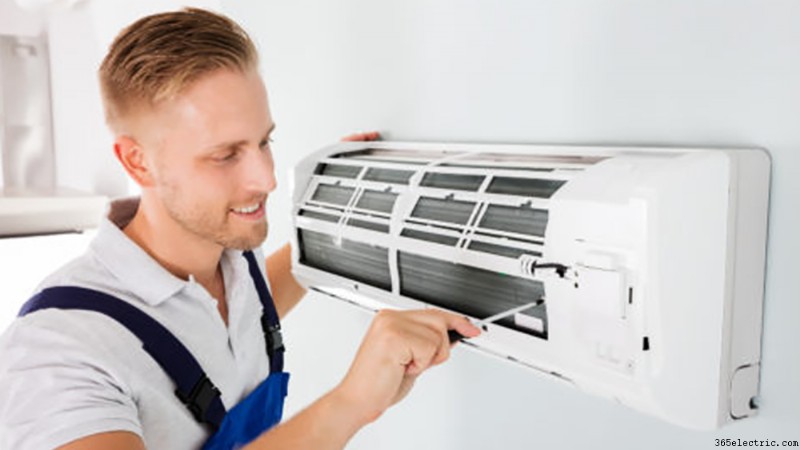
エアコンは内燃機関では作動しません。したがって、エアコンが車の排気ガスのようなにおいがする理由はありません。ただし、エアコンは一部の液体を使用しており、加熱すると排気ガスのようなにおいがする場合があります。
このような AC からのにおいは、おそらく冷媒ラインに漏れがあることを意味します。冷媒はエアコン内部の冷却剤であり、漏れは空調ユニットの性能に影響を与える可能性があります。さらに、化学物質を空気中に放出するため、環境に有害な場合があります。
クロロフルオロカーボンであるフロンは、徐々に段階的に廃止されていますが、エアコンで一般的に使用されている冷媒です。フロンは室内の空気から熱を吸収し、外に放出します。しかし、それは環境にとって本当に危険です。したがって、フロン漏れが疑われる場合は、常に注意する必要があります。
冷媒漏れに関する記事を読むたびに、フロンはどんな匂いがするの?
フロン漏れは、甘いクロロホルムのようなにおい、または簡単に言えば、車のクーラントのようなにおいがしますが、甘いにおいがします.ほぼ無臭のガスですが、臭いを感じることができます。しかし、フロンは空気よりも重いため、空気中に長くとどまることはなく、すぐに床の高さまで落ちてしまいます。
ACが化学薬品のような臭いを発している場合は、専門家にすぐにチェックしてもらう必要があります.フロン漏れは危険な場合があり、認定された HVAC スペシャリストがすぐに修理します。
それまでの間、窓を開けて、家の換気を確認してください。これにより、においを防ぐだけでなく、化学物質の漏れによる危険な影響も防ぐことができます。
2. AC は何かが燃えているようなにおいがしますか?
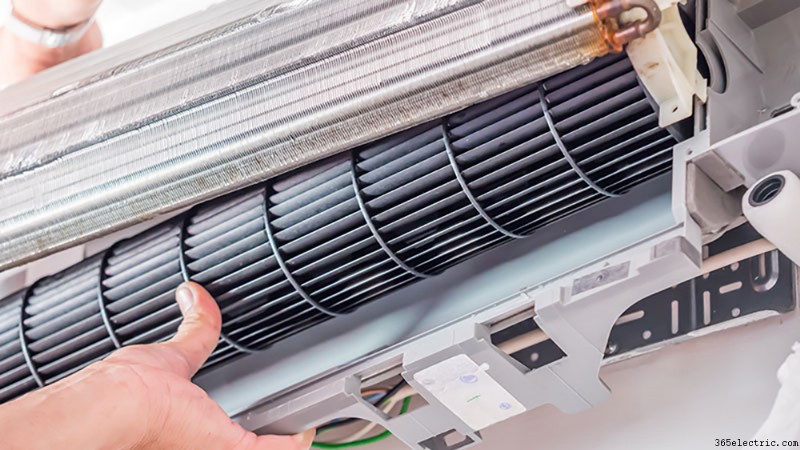
空調ユニットには、回路基板、電源線、ファン、コンプレッサーなど、多くの電気部品があります。
AC から火薬やプラスチックが燃えているようなにおいがする場合は、おそらくこれらのコンポーネントのいずれか、または複数が実際に燃えていることを意味します。この場合、すぐにエアコンの電源を切り、地元の専門家に解決策を相談してください。
この種の問題で DIY をしようとしないでください。危険です。
このようなエアコンの臭いのもう1つの一般的な理由は、長期間使用しないとユニット内にほこりがたまる可能性があることです.長時間電源を入れると、このほこりが燃えて悪臭を放つことがあります。これは一時的なものであり、あまり心配する必要はありません。
においが残っている場合、AC が故障し始めたり、においが非常に刺激的である場合は、ユニットの電源を切り、すぐに地域の HVAC の専門家に連絡する必要があります。
3. AC から腐った卵のにおいがしますか?
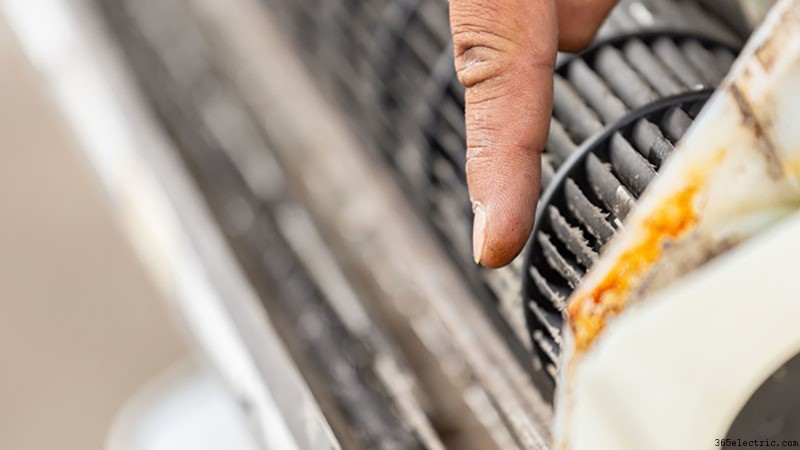
悪臭または腐ったエアコンの臭いは、通常、AC に詰まったげっ歯類または動物の死骸の結果です。これは、他と見間違うことのない、特徴的で独特の匂いです。
鳥や昆虫が配管内に巣を作ったり、隠れたりする可能性があり、残念ながら機器に閉じ込められてしまいます。
時間が経つにつれて、これらの死にかけている動物は不快な臭いを発します。エアコンのスイッチを入れるとすぐに、悪臭が家の中に放出されます。死にかけている動物や立ち往生している動物は、システム内のさまざまなコンポーネントに損傷を与える可能性もあります.
ダクトレス/中央空調システムを使用している場合、トカゲやその他の生き物が室内ユニットに入り、不快な経験をすることがあります.
このような厄介なシナリオを回避し、エアコンが死骸のようなにおいがするのを避けるために、ユニットを常に防虫対策することをお勧めします。いつでも技術者に電話して死んだ動物を取り除くことができます。または、この問題を自分で解決することもできます!
悪臭が発生している場所から正確なダクトを見つけ、ドライバーを使用してカバーを取り外し、死骸を慎重に取り除く必要があります。死んだ動物が見えない場合は注意が必要です。トーチをすぐに手の届くところに置いてください。剥がしたら、その部分を軽く拭き取り、乾いていることを確認してください。ダクトをチェックして、損傷がないことを確認し、入り口を密閉することをお勧めします。
4. Do You Smell Gas and Feel Like There’s a Skunk in the House?
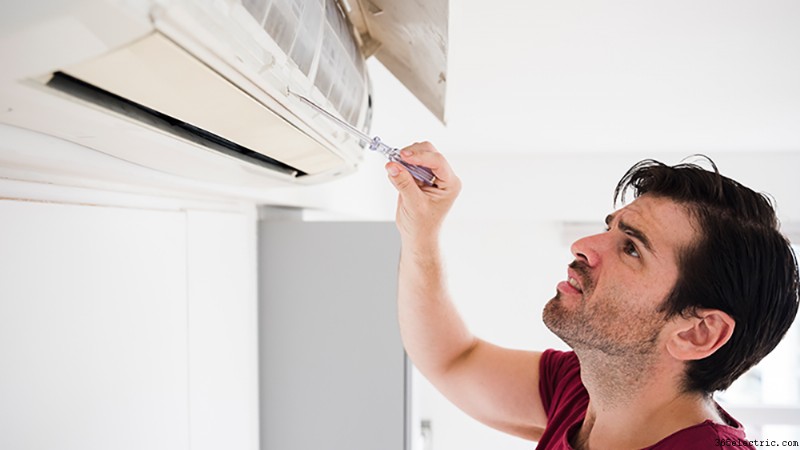
This air conditioner smell is the most alarming one on our list. More often than not, this indicates leakage of gas within the system, specifically, Methyl Mercaptan.
Natural gas on its own has no smell, but utilities and gas distributors put in Methyl Mercaptan to provide a distinctive odor to it. This ensures immediate detection to prevent any serious harm that can occur from gas leakage.
If your AC smells a lot like skunk spray, you won’t be mistaken. This means that gas is leaking and getting into your ductwork. At the first sign of such a smell, immediately turn off your gas supply. As a second step, contact your utility, who will detect the source and repair the problem.
5. Getting a Moldy or Musty AC Smell?
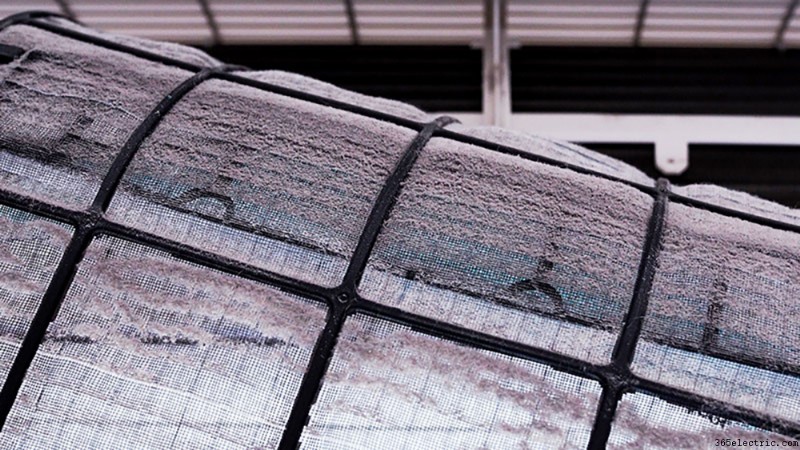
A stale and dingy smell is by far the most common and foul smell experienced from ACs. If your AC smells musty, the general cause is the accumulation of water in the drain pan or drip lines (or ducts in case of ducted systems), which can cause fungus or mildew to grow.
In case of a leakage, you might even get visible signs in your indoor ductless unit, such as water dripping down your wall.
Another reason for such a smell can be dirty filters. If you live in a hot and humid climate and turn your AC on after a long period of time, moisture can accumulate in your filters.
You will need to contact a professional and get your AC’s lines and ducts thoroughly cleaned. This will only remove the unpleasant smell. In case of a leakage, the source will also need to be fixed to prevent further problems.
6. Air Conditioner Smells Like Cigarette Smoke?
If you smoke at home, then there are chances that your AC will eventually end up smelling like stale cigarette smoke. This unpleasant smell can cause allergic reactions and headaches.
Your evaporator coil and filter absorb the odor from cigarette smoke. As a result, when you turn on the air conditioner, the embedded tobacco particles are knocked loose and sent back into your home through the AC’s vents, creating an unpleasant atmosphere.
Like all other problems, this problem has a simple solution. To eliminate the old tobacco smoke smell from your AC vents, change your air filter once every 30 to 60 days and clean your AC regularly. You can also start smoking outdoors.
Be Sure to Take Precautions Before Doing a DIY
There are a couple of things to keep in mind while we are at it.
Never try to do AC repairs by yourself. Always call a professional to do the job for you. Electrical components and water do not mix well, and there is a high chance of electric shock. You would be making a wise choice not to experiment at such a time.
If you do feel qualified enough to do a DIY, be sure you have thoroughly gone over your air conditioner’s maintenance and operating manuals. Then collect the right set of tools for the job. Finally, turn off the main power supply to your AC and have proper personal protective equipment (PPE) at hand.
Moreover, do not try to mask the bad smell using an air purifier or freshener. It will only make things worse. Delaying proper repair work will only damage your AC more than it already is and perhaps lead to you buying a whole new unit altogether.
Why my air conditioner smells bad? Hopefully, now you have the answer to the question!
Be it ducted or ductless air conditioning, all the factors above make for an unpleasant experience. So, the next time you come home and experience an unpleasant odor, you know exactly what it could be and what you need to do to fix the problem.
